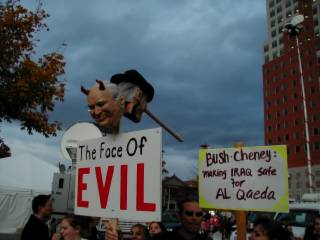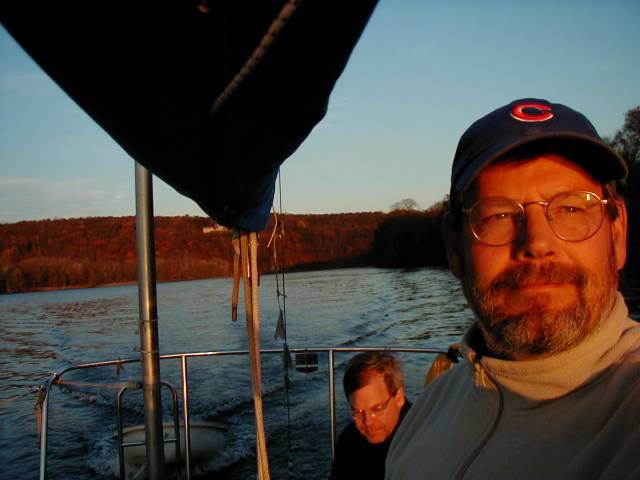James S. McKay
I’ve been a criminal defense attorney for the past 23 years, mostly handling the defense of very serious and violent crimes. One of the things that’s become clear to me over that time is that, much as we talk about "proof beyond a reasonable doubt," the reality is that most jurors require less proof in order to convict when a crime is particularly heinous or disturbing. Why? Because, contrary to what some might believe, jurors are human beings just like the rest of us. When they see something awful, they become angry and want to do something about it. Convicting the defendant is more often than not what they do. It’s hard to get people to be fair when they’ve been confronted with the evidence of a horrible crime. That’s what makes the Moussaoui jury’s verdict so remarkable, and so correct.
In the words of one of the survivors of a 9-11 victim, Zacharias Moussaoui was an "al Qaida wannabe." As several jurors indicated, his actual role in the plot remains highly questionable, largely because the principal evidence of it is his own furious bluster . In fact, whatever it is he might have done was precluded by the fact that he was locked up in jail on immigration charges at the time 9-11 occurred. Much as we should all be incensed by Moussaoui’s hateful taunts, what he was actually convicted of was based on his lies to the FBI, and as noted by another 9-11 family member, if that’s enough to put you on death row, there’d be a lot more people on death row.
Now why does this matter? Wasn’t 9-11 so bad that we should execute anyone who had anything to do with it? Well, no actually. What gives our law its moral authority is the fact that it takes into account not only the intent of the criminal, but what it is that the criminal actually did. That’s how we make the punishment fit the crime. People who aid crimes in less significant ways get less punishment than those who played a more active role. That makes good sense, and it’s one of the things that legitimizes our legal system and makes it so much better than an angry mob. We make the punishment fit, not exceed, the crime.
Nine jurors indicated that Moussaoui had suffered a difficult childhood in which he was subjected to poverty and violence, and spent many of his early years in and out of orphanages. I can hear many of you groaning already. Here we go again, you say, another criminal gets off easy by blaming his problems on somebody else. How many times do we have to listen to this?
Well, just to correct the record. Moussaoui’s not getting off easy. As punishment for his lies, he will spend the rest of his life in a jail cell where his principal contact with other human beings will be to have a food tray passed through a slot to him three times a day. In addition, it was not Moussaoui who put forth his awful background. It was his lawyers. Just as they should.
You see, the second way in which our law gains the moral high ground is by making sure the punishment not only fits the crime, but fits the criminal. Why? Because, we realize that people start out at different places in this world, not by their own design but by accident of birth. Many of us wish we were born to Donald Trump. Most of us are born to the Donald Smiths of this world, and if we’re lucky they treat us well and give us enough of what we need to make it through the world in pretty good shape. We know this in our bones. That’s why we lose sleep at night worrying about how to put our own children in the best environments we possibly can. We know that childhood matters, it really does.
People who do the most horrible crimes (and I’ve met a lot of them) don’t fall out of the blue. For the most part, their accident of birth put them in environments you wouldn’t wish upon your dog. Some people from these environments are gifted with the inner strength or good luck to make it through and become successful members of society. But all too many, like Moussaoui, wind up stuck in angry stew of deprivation and hate, seething until one day the explode against a world they perceive as having never given them a chance. Should we excuse their conduct? No, but neither should their punishment be blind to the fact that they were born into childhoods that are often as toxic as an industrial dumping ground. "But for the grace of god go I." It’s about as simple as that.
Moussaoui’s jurors did some of the toughest civic duty you’ll ever see and they deserve to be commended for it. They spent months of their lives reliving the agony of 911 and seeing its pain at close range, and they resisted the urge to simply lash out in anger. They followed the law and those principals that make it just. Those of us who would be inclined to criticize them should think twice. After all, you never know when that jury summons you get in the mail might call upon you do the same.
Atty. James S. McKay is a former member of the Connecticut Public Defender's Capital Defense Unit and is currently a trainer for the Division of Public Defender Services. His views are his own and do not reflect the views of the Division of Public Defender Services








